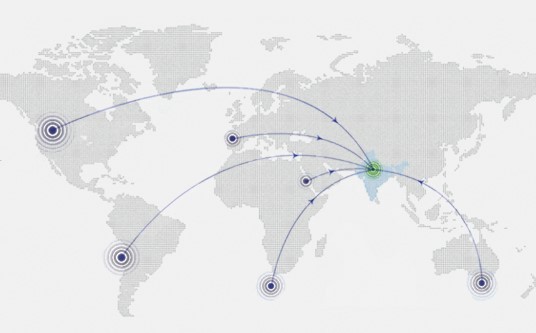Cutting wage bills while hiring remote tech teams in Covid
One of the consequences of the Covid-19 crisis has been the layoffs across industries owing to the slowdown in the economy. The technology industry hasn’t been spared either. Even though various market segments in tech have grown by leaps & bounds, most of the IT industry has either seen massive job cuts or hiring freezes.
There is a shrinkage of clientele for digital businesses & a bearish sentiment of companies to preserve cash by cutting the workforce. Tech talent is often one of the biggest operational expenditures for businesses and they are the first one trimmed off the books in a desperate fight to survive.
Despite the need to save costs, what hasn’t changed for businesses is the need to get work done. There is still software that needs to be maintained, new features built, and new development projects. The need for the finest developers is still there. It is the cost that doesn’t seem bearable for expansion, especially for SMBs.
Going Remote in Covid
While the pandemic has left the air thinner for tech companies, it has also served a solution on a platter to them. Almost all of the companies are currently working remotely. This has saved them massive real estate costs and access to a distributed workforce at lower wage bills.
Teams are already working remotely and have gotten comfortable with remote collaboration tools. Companies can now easily add international talent as permanent members to their teams. This lends hiring offshore remote developers as permanent team members a much lucrative option.
Although offshoring development is as old as the tech industry itself, most businesses now don’t feel comfortable outsourcing their development. They want to have more ownership over team. Therefore tech companies are now hiring offshore talent as a permanent team member, not just a hired swords.
While adding distributed offshore team members might seem intimidating and a hassle to most businesses, companies have been doing it all along. Uber has recently shared a plan to lay off 3,700 employees from its US office and is moving its development work to its Indian office. Not all companies have the liberty of moving their offices to India but can still benefit from the wage differences by having a remote distributed team.
One of the inhibitions that most companies have before considering hiring distributed talent is access to quality. Uber’s move to India also brings credibility to the quality of Indian talent. Most might assume that hiring offshore from India means hiring $10 per hour cheap labor and all the nightmares that might bring with it. Truth is slightly contrarian and in a good way.

India Remote Story
India has a booming tech scene with 21 tech unicorns in the last 10 years and tech giants like Google, Amazon, Microsoft, Uber, Adobe, Samsung, et al., already have their development offices in India. As per our survey, we learned that startups that hire remote devs from India are hiring the developers in senior positions at 50–60K USD per annum. These top 1% developers from India are as skilled as someone they would have pay up to 200K USD in the valley. These developers are uncompromising in quality and are creating immense value for these companies. Gitlab already has over 30 remote employees from India.
But how do we hire remote?
Companies find challenges in finding and hiring these top talent from India. Managing the legal and payroll logistics of hiring & paying from India is also one of the challenges our survey participants reported. It is based on this feedback we have started UpSkillie - a career accelerator to screening the top 1% developers and training them to be world-class developers. We not only help companies hire developers but we also help them manage the logistics of it like local taxation, contracts & legal, remittances, supplying of a laptop etc.
If you wanna know more about how you can also save on your wage bills without compromising on the quality. We would love to hear from you at hello@upskillie.com.